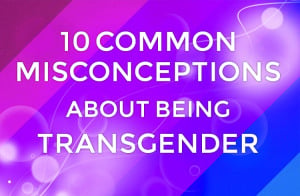
Young person staring at the camera with an indifferent facial expression while parents are blurry in the background
Let me start by saying that I’m a sex writer, and I can’t talk to my family about sex.
I have no problem broadcasting my sex life to the Internet, yet I’ve told my parents not to Google me so they can’t learn anything about it.
I know it makes no sense. I’ve done nothing wrong that I need to hide.
My parents aren’t against sex before marriage or anything like that. I’m sure they’ve assumed I’m having sex, and I can’t think of any rational explanation for why we can’t acknowledge that. And not acknowledging it takes a lot out of me.
When my parents ask how I spent my day, I can only half answer it, because the other half of the answer is that I’ve written about sex.
I can’t be myself around them because being myself means talking about masturbation and porn and orgasms.
But from a young age, it was ingrained in me that parents don’t want to hear about their kids’ sex lives, kids don’t want to hear about their parents’ sex lives, and siblings don’t want to hear about each other’s sex lives. And, in particular, people don’t want to hear about their daughters’ or sisters’ sex lives.
I think this idea is bullshit – there’s nothing inappropriate or disturbing about sexuality. And not all cultures see it as such.
Dutch teens, for example, frequently confide in their parents about their sex lives, which might explain why fewer of them end up regretting how soon they become sexually active.
There’s no reason families can’t discuss sex the same way friends can, and avoiding it has these harmful consequences.
1. We Further the Idea That Sex Is Shameful
“I don’t need to know that.”
“Not while I’m eating.”
“Well, now I can’t unsee that.”
“TMI.”
These are phrases we use to police how open people – particularly our family members – are about sex.
They make it sound like someone’s confessed to a crime, even if they’ve said something as vague as “we didn’t get much sleep last night” or “I’m so glad your mom and I have kept the passion alive all these years.”
It seems like sometimes we act grossed out by these things because we’re scared that if we didn’t, that would make us gross.
But if sex does seems disgusting, that’s probably because sex-negative society has taught us that.
What happens around family dinner tables is a reflection of what happens on TV, in classrooms, and all over society. We learn that sex is shameful, sex is sinful, and sex is dirty.
When family members shame one another for talking about sex, they contribute to the stigma that makes it hard to talk about sex with anyone.
Their kids become embarrassed for having sexual urges, which makes them less likely to discuss them and get the guidance they need. They can also become ashamed of having sex and may even shame others who do.
If we instead taught our children that sex is a perfectly normal topic of discussion at the dinner table, we could teach them that sex itself is normal.
Viewing sexual urges as a normal part of life, for many people, could combat the stigma that a lot of us, especially women, feel for having or simply wanting sex. It could even combat our tendency to judge women based on how much sex they have.
And since kids are already bombarded with sex-negative messages in the media and at school, they could use sex-positivity at home as early as they can get it.
2. We Further the Idea That Sex Is Dangerous
Sex is censored in a similar way to violence in the US, both in movies and in conversations.
People get particularly protective about talking about sex with children, as if it will traumatize them and take away their innocence.
But sexuality is unrelated to innocence. Many kids have sexual thoughts and feelings and even masturbate before they hit the double digits.
By acting like sex is a disturbing topic on par with violence, we end up encouraging the notion that sex itself is violent. We feed into the messages sent by porn, where 88 percent of scenes contain physical violence, and purity culture, which teaches girls that sex will rob them of their virtue.
We reinforce the notion already spread by phrases like “fuck you” and “get it in,” that sex is by definition a violation of a woman.
Granted, children aren’t emotionally mature enough to understand everything a sexual relationship entails. But that just means they have a lot to learn. It doesn’t mean hearing about sex will damage them.
What is damaging about the fact that people in loving relationships make each other feel good? What is scarring about the fact that some people can have children if they want to?
The stigma against parents talking about sex with their kids encourages the notion that sex isn’t child-appropriate or family-friendly and is, therefore, somehow wrong or evil.
3. We Objectify Daughters
We’re not “supposed” to talk about sex with our families in general, but we’re really not supposed to talk about it with girls.
The cliche in popular culture is that dads are horrified at the thought of their daughters being sexual or romantic beings. In Full House, Danny Tanner actually spies on DJ’s date to make sure it doesn’t go too far. Gordon Ramsay joked about installing a camera in his daughter’s room for the same purpose.
Acting like your daughter having sex would be horrible once again contributes to the notion that sex is by nature violent toward women.
This gives girls a very bleak understanding of the possibilities for their future relationships, and precludes the possibility that they could grow up to enjoy the kind of relationships that wouldn’t anger their dads.
Of course, girls deserve to learn how common sexual violence is, what the warning signs are, and why they deserve better. But freaking them out about sex doesn’t do that. It does the opposite.
If we teach girls that sex in general is negative, they won’t blink an eye when they have a negative experience. They won’t expect anything better.
The trope of the dad or big brother pretending his daughter or sister is asexual is the fodder for many jokes, but its consequences are serious. It furthers the shame already imposed on girls just for being sexual. It fails to teach them how to pursue healthy relationships, and it furthers the belief that they belong to men.
By trying to desexualize their daughters, dads are actually sexualizing them by claiming ownership over their bodies and implying that their sexual experiences dictate their value.
4. We Shame Certain Sexualities
The taboo against discussing sex among families shames everyone, but it shames some groups more than others.
Aside from women, other groups that face particular stigma in discussing sex are LGBTQIA+ people, fat people, people who are into kink, and people who don’t fit into their culture’s beauty norm.
When these people’s families police them, they convey that certain forms of sex and relationships are more acceptable and palatable than others.
So, censoring discussion of sex serves to inflict shame across the board, but it also enforces a hierarchy that says some are more entitled to their sexuality than others.
5. We Leave Kids Uneducated
Since most kids in the US aren’t getting much sex education at school, it’s crucial that they get it at home. By refusing to talk about sex with kids, we fail to provide that.
Young people need a safe place to learn not only about the mechanical stuff like pregnancy and STIs but also all the emotional stuff that comes along with sex, like deciding when they’re ready, and who they can trust, and whether they’re being treated right.
It can be lonely and scary to feel like asking for help may get you in trouble.
And when kids can’t get adequate information, they may have no alternative to the toxic messages about sex from porn or mainstream magazines. Or, they may be totally in the dark. This can lead to unwanted pregnancies, STIs, and abusive relationships at worst – and plain old bad sex at best.
Maybe it explains why Americans have three to six times the teen pregnancy rate of Western Europe and 20-30 times the chlamydia and gonorrhea rate of the Netherlands.
Learning about sex is vital for our physical and emotional health, and the stigma against families discussing sex impedes it.
6. It Prevents Us from Being Ourselves
I’d wanted to write about sex and relationships for years, but I didn’t get up the courage until recently – partially because I knew my parents snooped on me online. And now, because we have this wall between us, I don’t share work I’m proud of with them.
At family gatherings, I tell my relatives I write about vague things like “women’s issues.” When they ask what I’m working on, I omit what I’m most excited about.
My parents don’t even know I’ve had a tattoo for months. It’s an octopus, which has been employed in literature for centuries to symbolize the powerful, engulfing strength of vaginas and people with vaginas.
I wear long sleeves around my family because I don’t know how to explain why I chose that image. Yet, that image is such a huge part of my identity that I got it tattooed on my arm.
How can my family and I be close when I’m hiding so much?
This may be a particular issue for sex writers, sex workers, and others whose professions involve sex, but sexuality is a large part of many people’s personalities and lives.
When our natural tendency is to be openly sexual, we end up constantly censoring ourselves in environments where discussions of sex are unwelcome, which takes a lot of energy out of us. We may even end up spending less time around our families so we can spend more time talking about the sex-related topics we care about.
***
Combine ignorance with the emotional consequences of being taught sex is too shameful a topic for polite company, and people whose families didn’t talk about sex also may not talk to their families about sex. It’s a self-perpetuating cycle.
So, how do we break it?
I’m probably not the best person to ask. I still change the channel when a sex scene appears on the screen and my parents are on the couch.
But I would say, do whatever you can comfortably, and without excessive backlash, to foster healthy discussion of sexuality within your family.
It’s okay to feel too embarrassed, but remember, it’s also okay to talk about sex with or without embarrassment.
It’s also okay to recognize when your efforts will only be met with hostility – especially if you’re a woman or LGBTQIA+ person whose sexuality is already stigmatized – and decide this isn’t your battle to fight.
If you can’t get yourself to talk about sex with your siblings or parents, maybe start with an aunt, or uncle, or cousin.
Of course, you don’t want to violate anyone’s boundaries in the process. Even if someone’s reasons for not wanting to talk about sex are problematic, you still need to respect that wish.
But you might find that your shamelessness gives others permission to be unashamed.
Some people are reluctant to discuss sex with their families just because they feel like they should be. Once that social norm is removed, lots of productive discussions can occur.
The family members I’ve been able to discuss sex with have provided invaluable information about how I should expect to be treated in bed.
Even if you have nothing specific to talk about, letting a family member know you’re there to answer questions could save them from being forced to deal with an issue all alone down the line.
Maybe, they’ll not only feel less shame around sex but also know they’re loved and cared for, no matter what sexual decisions they make.
[do_widget id=’text-101′]
Suzannah Weiss is a Contributing Writer for Everyday Feminism. She is a New York-based writer whose work has appeared in The Washington Post, Salon, Seventeen, BuzzFeed, The Huffington Post, Bustle, and more. She holds degrees in Gender and Sexuality Studies, Modern Culture and Media, and Cognitive Neuroscience from Brown University. You can follow her on Twitter @suzannahweiss. Read her articles here.
Search our 3000+ articles!
Read our articles about:
Our online racial justice training
Used by hundreds of universities, non-profits, and businesses.
Click to learn more




















